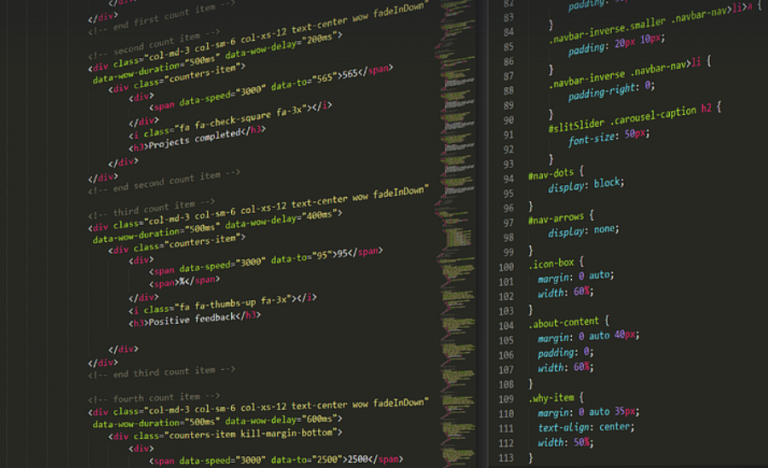Curious about the world of coding? Want to dive into the technical side of creating awesome stuff but not commit fully to a degree yet?
You’re not alone. Many students are curious about software engineering and see it as a field that might be fascinating, but they also want to be sure it’s the right path for them.
A minor in Software Engineering can offer a perfect solution – a taste of this exciting world without fully committing.
Let me break down what it means and how this might become your stepping stone towards a career in technology.
What is a Minor in Software Engineering?
Think of a minor as a concentrated dose of something you’re interested in, kind of like a mini-masterclass. In the case of software engineering, it’s all about gaining foundational knowledge and skills to understand how code works.
It allows you to explore this field without taking on an entire degree program. Imagine diving into coding basics, learning essential programming languages, understanding data structures and algorithms – a whirlwind tour through what makes computer programs tick, all while earning your degree in your chosen field.
Why Choose a Minor in Software Engineering?
There are plenty of reasons why you might consider this minor. Here’s the lowdown on how it can benefit you:
- Skills Upgrade: A software engineering minor is an excellent way to equip yourself with valuable skills that can open doors for future opportunities across various industries.
- Career Exploration: Test the waters and see if coding truly aligns with your passion. It’s a chance to explore new careers, discover what excites you, and ultimately make a career choice that’s best suited for your aspirations.
- Flexibility: You get to choose how you want to learn. You can take courses during your bachelor’s degree or as part of an evening program, allowing you to fit this minor into your existing academic schedule.
- Networking Opportunities: Connecting with other aspiring software engineers and industry experts through workshops, guest lectures, and even internship opportunities can greatly benefit your career path.
- Boost Your Resume: A software engineering minor on your resume is a powerful statement. Employers seek out individuals who understand the basics of coding – it demonstrates adaptability and an eagerness to learn in today’s tech-centric world.
What Will You Learn?
A software engineering minor typically covers a range of topics, providing you with the foundation for a career in this dynamic field. Some common areas covered include:
- Programming: Learn fundamental programming languages like Python and Java, mastering essential concepts like variables, loops, functions, objects, and data structures.
- Data Structures & Algorithms: Understand how to organize information efficiently and develop efficient algorithms to solve real-world problems.
- Computer Architecture: Explore how computers work at their core, from memory management to operating systems.
- Software Development Methodologies: Master the principles of software development, from Agile methodologies to waterfall methods. Learn how to collaborate effectively, manage projects efficiently and deliver high-quality products.
- Networking & Cybersecurity: Gain a basic understanding of networking concepts and cybersecurity techniques.
How Can You Pursue It?
The beauty of this minor is that it’s flexible, adaptable to different study environments.
You can choose from:
- On-campus courses: Take regular lectures and labs at your university.
- Online programs: Learn at your own pace through online platforms with interactive modules and virtual classrooms.
- Hybrid options: Combine the best of both worlds, taking some classes on campus and others online for a personalized learning experience.
Don’t forget to check out your university’s website for specific course offerings, prerequisites, and program requirements.
What After Graduation?
A software engineering minor opens doors to exciting opportunities in various industries:
- Tech Companies: Land a job as a software engineer, web developer, data analyst, or even an embedded systems designer.
- Startups: Become part of a new company where innovation is at the forefront and you can contribute your skills to make a real impact.
- Government Agencies: Apply your coding knowledge in public service roles like developing software for citizen services, healthcare, or transportation.
The Future of Software Engineering
Software engineering is an ever-evolving field. It’s not just about writing code; it also involves problem-solving, creativity, and innovation. 2024 and beyond will be marked by:
- Artificial Intelligence (AI): Dive into the world of AI and machine learning, where software engineers create intelligent systems that learn from data.
- Big Data: Become part of the team that analyzes vast datasets to extract valuable insights for business applications.
These are just a few examples; the possibilities are endless! What will you focus on with your minor? The world is waiting for software engineers who can use their talents to shape a better future.













